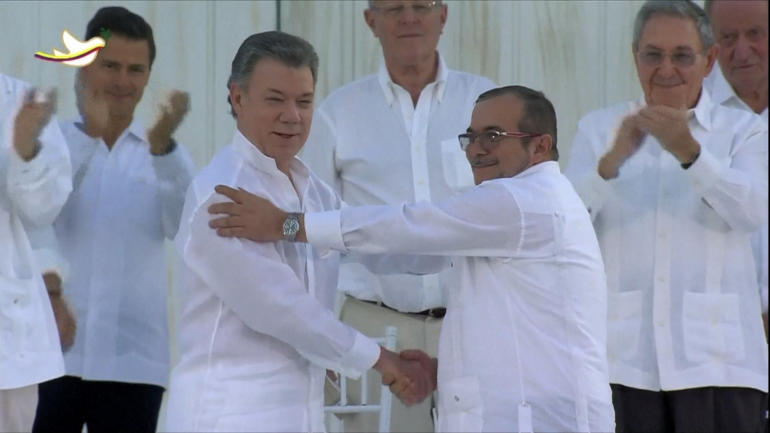In 2016, Colombia signed a peace agreement with Latin America’s oldest and largest rebel group, the FARC. De la Calle was at the head of the government negotiations.
Humberto De la Calle says he considers himself an existentialist who devoured literature, philosophy and all the greats from psychoanalysis. His interests and studies may be what helped him in what he believes is one of the greatest roles he took on in life. He accepted the position of chief peace negotiator, representing the Colombian government, in talks to end 50 years of armed conflict in the country.
But the business of building peace doesn’t come without challenges. Colombians had experienced failed peace processes before and knew the road was full of obstacles. Patience was key for these setbacks.
De La Calle continues to be a spokesman for peace and the protection of what he spent years bringing to fruition. While the two sides cannot walk back on an agreement, he argues passivity towards its implementation can mark and end to the accord.
“There is still certain social resistance especially in a society where you don’t see the key word that should be in our conversations. Reconciliation. We speak of weapons and plans to develop, we speak of constitutional norms. But in the end the final purpose is to achieve reconciliation among Colombians. And that task is still pending. There are many risks but I am also optimistic that we will not make the mistake of going back and restarting a war with such cruel characteristics,” said De la Calle.
Correspondent Michelle Begue spoke to him about the biggest challenges he faced as the head negotiator for a peace accord to end the 50-year armed conflict.
 CGTN America
CGTN America Former President Juan Manuel Santos and Rodrigo Londono, leader of the demobilized FARC guerrilla at the 2016 Peace Agreement signing ceremony in La Habana, Cuba
Former President Juan Manuel Santos and Rodrigo Londono, leader of the demobilized FARC guerrilla at the 2016 Peace Agreement signing ceremony in La Habana, Cuba
